

“The


vs. Stotfold Reserves
Spartan South Midlands Division One Saturday 18th January 2025, 3pm







“The


vs. Stotfold Reserves
Spartan South Midlands Division One Saturday 18th January 2025, 3pm




WelcomebacktoHaydenRoad, fortoday’sgameagainstStotfold Reserves.
What a busy few weeks The Lankies have had off the pitch, with the current cold snap ensuringthatwewereleftidleon it.
Following our 1-0 defeat to Raunds, in which we actually played quite well but couldn’t hit the back of the net despite multiple opportunities - manager Jon Shanks handed in his resignation and has been replaced by his former assistant DannyJackson.
We wish the best of luck to Jon for his future endeavours, Mr Shanks will always be welcome backatHaydenRoadanytime.
Simon Swingler
Rushden & Higham United FC
Hayden Road
Rushden Northamptonshire
NN10 0HX
Admission: £6Adults
£3 Concessions
£0 Under 12s
Chairman: Aidy Mann
Manager: Danny Jackson
Secretary: Scott Freeman
Bar: Gina Wrighton
Gate: Helen Whitehead
Programme: Simon Swingler
Committee: Phil Summers
Committee: Jamie Loveday
Committee: Ben Harrison
Twitter: @RandHUFC
Instagram: rushdenandhigham.fc
Email: rhufcsec@yahoo.co.uk
Many thanks to the following people for permission to use their photos: Shaun Frankham
TraceyAspinall
Finbarr Carroll
Niki Crook


Stotfold FC was officially founded, with proper financing, stewardship and record-keeping, in 1946.The club played for many years at the Hitchin Road Recreation Ground before moving into the newly developed Roker Park ground in 1965.
In 1951 the club joined the South Midlands League Division Two, finishing 2nd to gain immediate promotion to Division One. They were Division One champions in 1953–54 and were promoted to the Premier Division, where they remained for thirty years. Stotfold won the South Midlands League Premier Division for the first time in the 1980–81 season.
In 1984, the Eagles were transferred to the United Counties League. They were admitted straight into the Premier Division, where they stayed until 2010. Through the 1990s, the club generally finished high in the top ten. After several changes of manager, the club re-appointed former Arsenal man Ian Allinson as manager for 2007–08, and he rewarded them by leading the club to their most successful season, including the UCL championship for the first time. He subsequently left to join Boreham Wood. The championship was clinched in dramatic fashion; starting the second half 0–4 down to closest challengers Long Buckby, Stotfold managed to equalise in the 90th minute for the point needed to clinch the title.
Stotfold transferred to the Spartan South Midlands League for the 2010–11 season. They remained in the Premier Division before being relegated to Division One on the last day of the 2018–19 campaign.
Stotfold achieved a landmark for the club in February 2020 when they moved to their brand new £2m step 4 ready stadium at New Roker Park on Arlesey Road.





There is nothing entirely new in football. Every tactical innovation has its roots in history, drawing on a century and a half of experience to create the ‘genius’ we see on the pitch today.Tika-Taka, the Sweeper Keeper, Inverted Wing Backs, they can all be traced back through the years to an original progenitor, who had the idea in a time before every blade of grass was analysed.And in Giacinto Facchetti, we find the first, and one of the greatest, modern full backs. He was fast, he was athletic, he created and scored goals, marauding down the left flank. And, unlike so many who have emulated him since, he could defend.
The young Facchetti started his career in his native Bergamo, as a striker. Fast and powerful, and with a dedication to his craft, he impressed in youth tournaments and caught the eye of Serie A coaches. One, in particular, saw the missing piece of a puzzle he was putting together in Milan. The legendary and visionary Helenio Herrera looked past the forward and saw the potential for one of the greatest left backs of all time. He took him to join his project at Inter, and set him to work.

Herrera worked hard with his former striker to develop his defensive qualities, and in only his second game, against Napoli, he was praised for his tackling ability as well as for scoring. Facchetti quickly established himself as the club’s first choice left back, and soon after, as one of the best full backs in the game. He was part of Inter’s first Scudetto in nearly a decade, and in 1963-64, set about to win the ultimate prize: the European Cup.
The competition was a straight knockout, which suited Inter. After scraping past Everton, the breezed through against Monaco, Partizan and Borussia Dortmund to meet a legendary Real Madrid in the final. Facchetti was lauded afterward, having created a number of chances for his side, but more importantly for tucking in and tempering his attacking impulse. He played close to his centre backs, and nullified an attacking line that included Alfredo di Stefano and Ferenc Puskas. Sandro Mazzola took care of the goal threat, and Inter won 3-1, their first European Cup. They would repeat the feat the following year.
The 1965-66 season was Facchetti’s most productive domestically, scoring 12 goals as Inter once again won the Scudetto, but internationally it was a disappointment. He made the World Cup side, but after an embarrassing defeat to North Korea felt the need to write to a journalist who had called him the best defender in the world, apologising for his performance. International redemption would come for the Inter legend, but not before the disappointment of losing the 1967 European Cup final to Jock Stein’s Lisbon Lions.
By the time the 1968 European Championship came around, nobody doubted Facchetti’s quality, and with his good looks and gentlemanly conduct, he was the obvious choice to be made captain. The competition was derided at the time, and since, because UEFA could only drum up four teams to play, but for Italy and Facchetti it was a serious chance to put the nightmare of 1966 behind them. The semi-final against the Soviet Union was dour, and neither side could make the breakthrough in normal or in extra time. Luck saw Italy into the final, with the outcome decided by a coin toss. But in that final, the put a talented Yugoslavia side to the sword. Facchetti made the team of the tournament, and Italy won their first silverware in three decades.
The wing back continued his captaincy into the 1970 World Cup, where Italy are remembered for being trounced by Pele’s Brazil in the final. But they, and he, were magnificent before that game. In particular, in the semi-final against West Germany, where Facchetti didn’t stop running. In burning heat, in front of over 100,000 spectators, he kept the organised German side pinned back in their own half, and kept his own nation on the front foot. But the Germans were no shrinking violets. It took until extra time for Italy to find the winner.After their loss in the final, Facchetti apologised to his compatriots and congratulated the victors. ‘That’s sport’, he said, explaining that sometimes a team is just better.
He continued to play for Italy until 1977 and for Inter until 1978, adding another Scudetto and a Coppa Italia to his trophy cabinet. He stayed at the club as a coach, and later President, and they retired his number three jersey. Perhaps his greatest legacy, however, came on the other side of the city, where Paolo Maldini idolised him.
‘Adefender must be able to defend’the former winger would say of his career. ‘If you can’t do that, you’re just a winger out of position.’Perhaps some modern players could learn that lesson too. Enjoy the game.
Martyn Green, The Untold Game


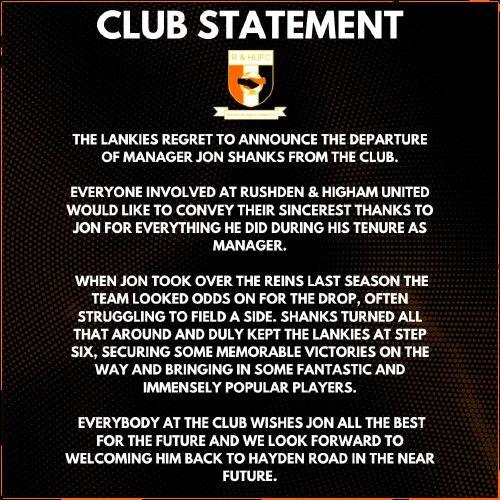






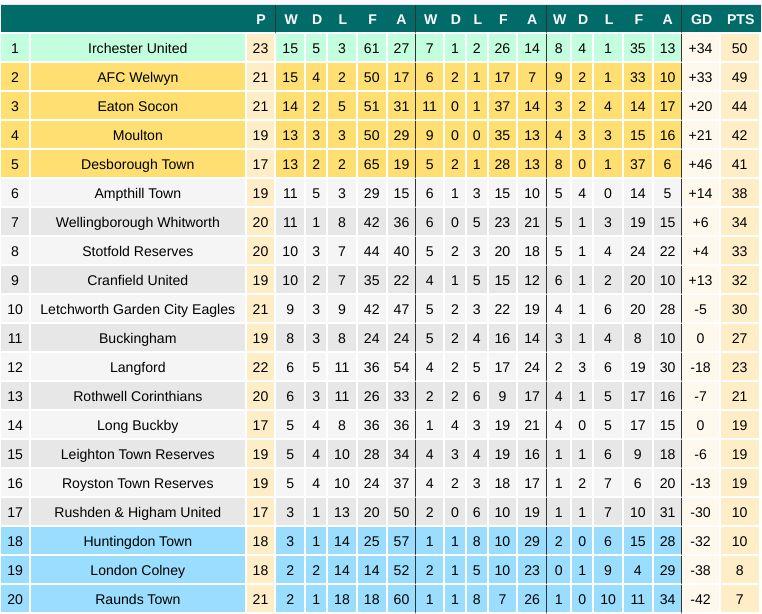


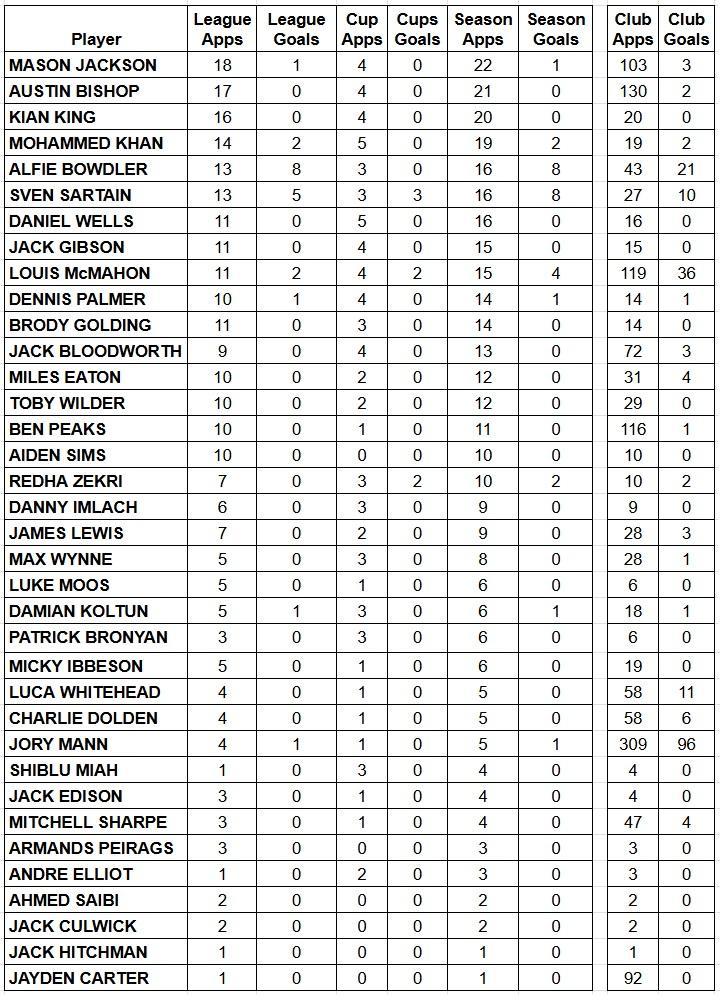






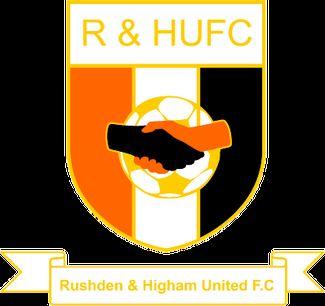




The earliest recorded mention of Higham Town Football Club occurred in 1876 when the club was formed following a meeting held at the Griffin Public House in Higham Ferrers. The club initially competed in the Northamptonshire League during the latter part of the nineteenth century.
The Lankies’ golden age was undoubtedly in the 1920s, when they were reformed following the conclusion of the First World War. By this time competing in the Wellingborough & District League, they won the NFA Junior Cup also gaining admittance to the Northants League which they won in their maiden season along with the Northants Senior Cup.
The league title was retained a year later as well as Northamptonshire’s premier trophy, The Maunsell Cup. The same season (1921/22) the Lankies enjoyed a long run in the FA Cup culminating with a tie against Football League Chesterfield. More than matching our professional opponents we secured a 4-4 draw at Saltergate before succumbing by a single goal to nil in the replay.The Lankies were also the highest scorers in the FACup that season.

In the 1923-24 and 1926-27 seasons the club were league runners up and in 1931 and 1933 they were also Northants Senior Cup runners cup. In 1936 the Maunsell Cup was once again secured withThe Lankies defeating NorthamptonTown in the final.
On resumption of the football calendar following the end of the Second World War The Lankies competed in the Rushden & District League where they remained before joining the United Counties League. During the period between 1950-1997 The Lankies finished runners up in the league on no less than seven different occasions.
In 1997 The Lankies finally secured the United Counties League Division One title which was the club’s first league title in seventy five years.
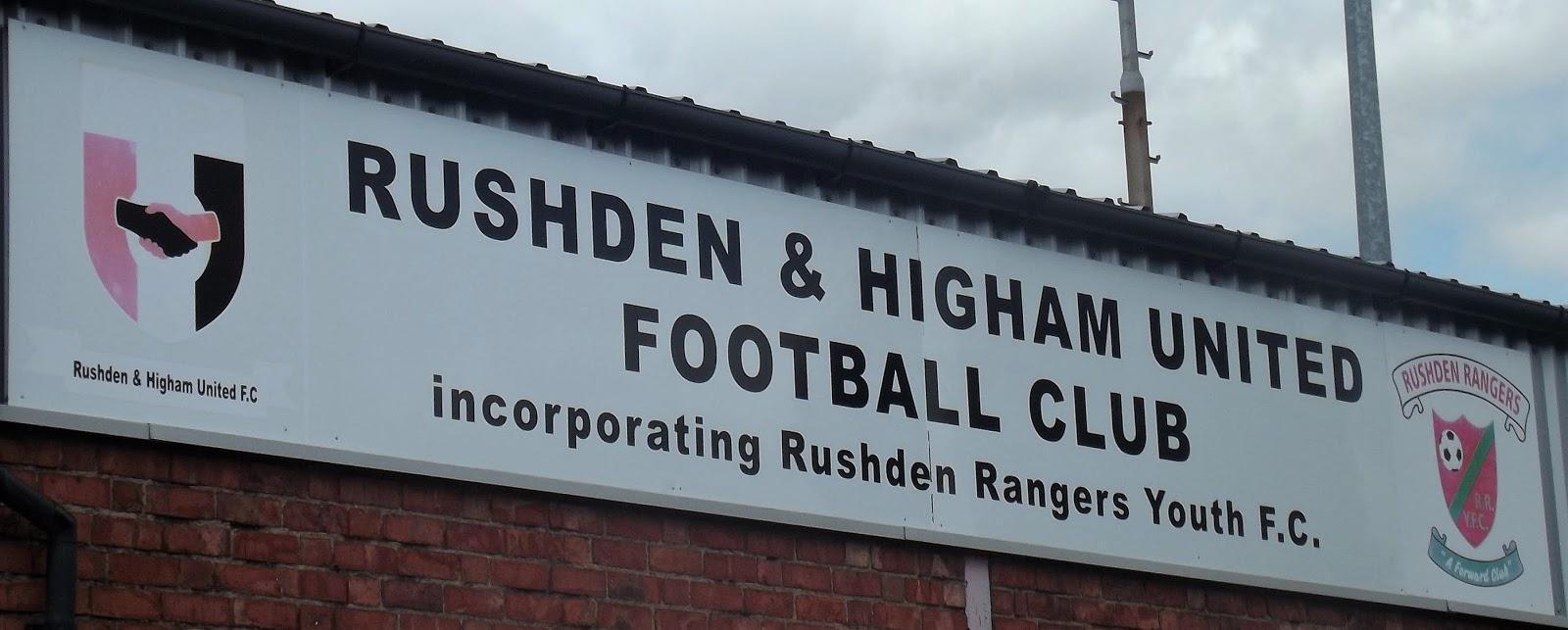
Rushden Rangers were formed as a youth football side in 1978 by Steve Cavender who was inspired by watching local lads playing a jumpers for goalposts game in Melloway Park, Rushden. Steve would hold the position of Rushden Rangers’secretary until 1990.
In the club’s heyday it boasted numerous youth sides and two senior sides going on to secure the NFALower Junior Cup and the Northants Combination League title.
In 1994 Neil Gant offered the Hayden Road facility to Rushden Rangers which now lay vacant following Rushden Town’s merger with Irthlingborough Diamonds and subsequent move to Nene Park.
In 2007 the decision was made to merge Higham Town and Rushden Rangers, with the new club playing at Hayden Road in order to preserve their United Counties League status. With assistance from the Stadia Improvement fund the Hayden Road facility was brought up to the required standard.

Since the merger Rushden & Higham United has plied their trade at Step Six, initially in the United Counties League and more recently the Spartan South Midlands Division following a lateral move in 2021.
The club’s most famous day since the merger in 2007 came in 2013 when the NFAJunior Cup was secured with victory over Cogenhoe at NorthamptonTown’s Sixfields Stadium.

Mickey IBBESON
Mason JACKSON
Kian KING
Jack BLOODWORTH
Mitchell SHARPE
Alfie BOWDLER
Austin BISHOP
Ben PEAKS
Jory MANN
Louis McMAHON
Patrick BRONYAN
Max WYNNE
Toby WILDER
Sven SARTAIN
Brody GOLDING
Redha ZEKRI
Daniel WELLS
Mohammed KHAN
Jack CULWICK
Charles BEDFORD
Jack BROWN
Harry BUCKLEY
James CANE
Jonny CRAWFORD
Billy DEXTER
Gurjosh DHESI
Sam HOPE
Billy LITTLE
Darai LONG
Charlie MALLETT
Jack ROSENWINK
Charlie SCOTT
Harry SMITH
Codi SPAVINS
Jack STANTON
Robert WILCOCK

Match Officials:
Tom Mark Glynn